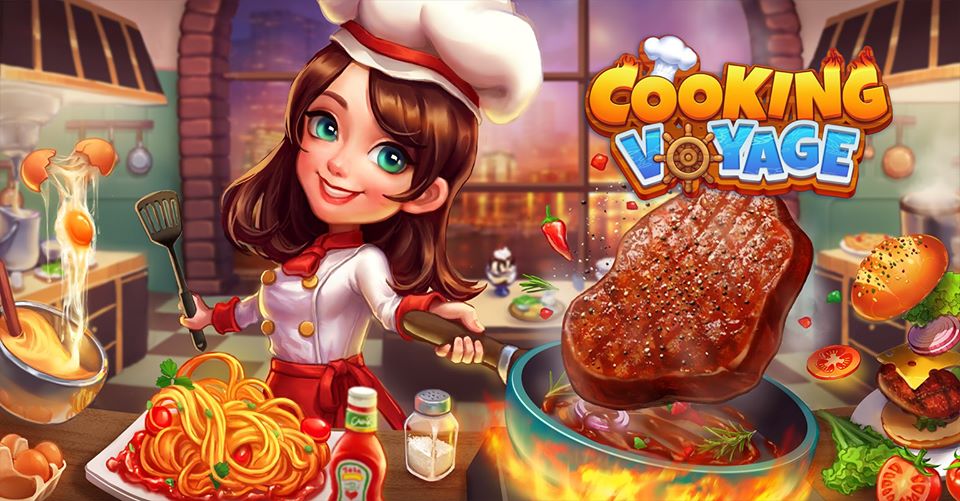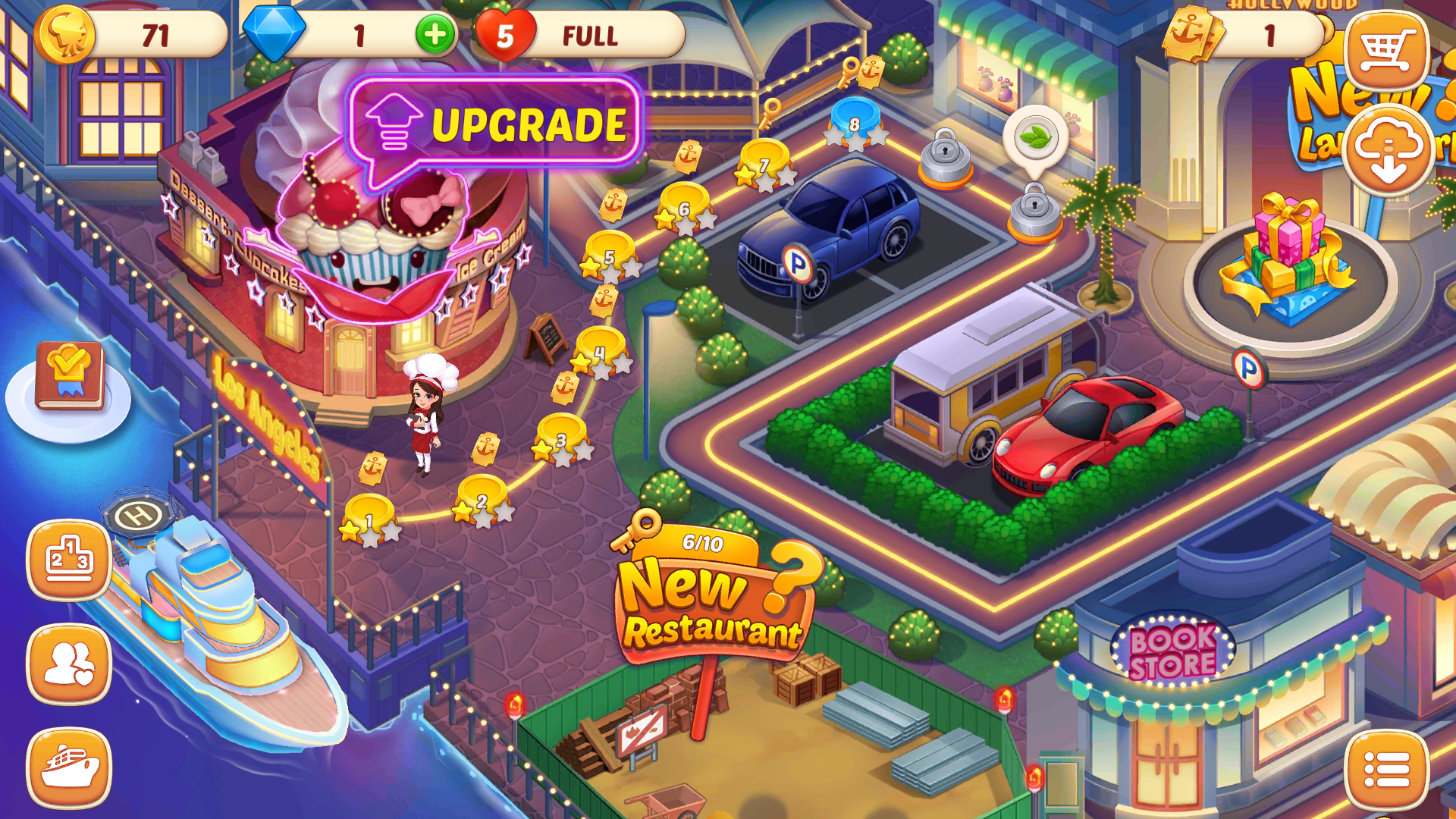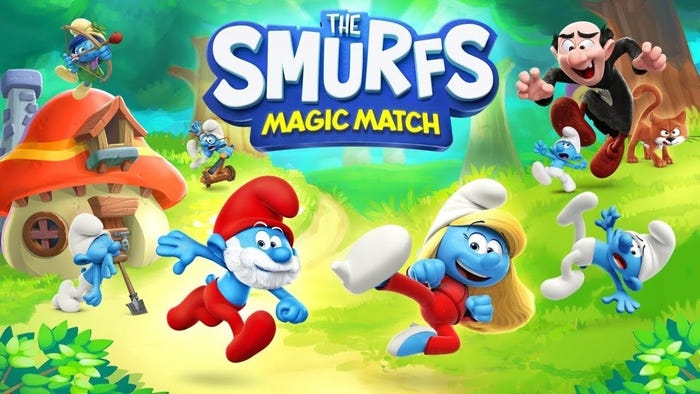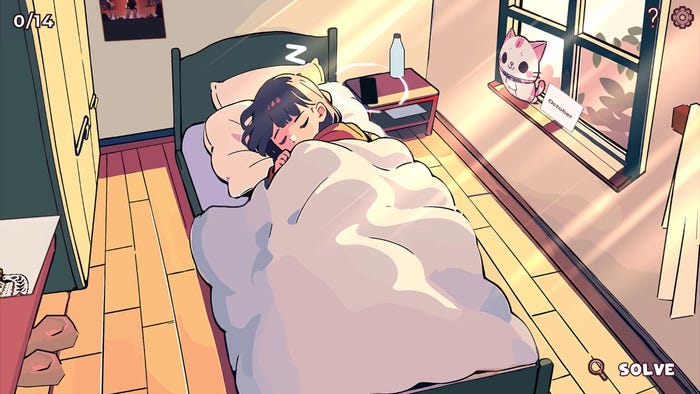Monetizing Cooking Games: Q&A with Newvoy's CEO & Founder, Yang Lu
Monetizing a successful Cooking mobile game: Interview with Newvoy's CEO & Founder, Yang Lu. Learn how Cooking Voyage (launched on iOS & Android during COVID-19), is rapidly growing in the app stores. +500K installs during the first month!

This post was first seen on Appodeal Blog, on June 2020.
Yang Lu & Jun Zhu have been developing mobile games for women and young girls since 2011. In 2018 they founded Newvoy Games, a studio based in Canada and China that employs over 20 people. They focus on creating fun casual games for mainly female audiences.
This March, in the midst of COVID-19 situation, they globally launched Cooking Voyage, a cooking mobile game that is growing rapidly in the app stores. In just a few months, 500K+ users have already installed this magnificent game on their mobile devices, and their metrics seem unstoppable.
To understand and learn more from the Newvoy Games’ success, Appodeal, has invited Yang Lu to share her story with us.
Yang, thank you for sharing your experiences with us! How did you come up with the idea for Cooking Voyage?
Hello Marc, the pleasure is all mine.
In all these years developing Mobile Games for women and girls, we’ve seen that cooking games have consistent metrics. We have acquired a lot of experience in a very specific target audience, and we saw that Cooking games have a good reception from them. It is a genre that allows us to develop and produce a lot of content, not only in our core-mechanics but also with other extra features that spice up the experience of our users.
I also must confess to you that I have been a super fan of cooking games myself for many years. I played them a lot, and creating a great cooking game has always been a dream of mine. Cooking Voyage is not just a business enterprise for me, but also something very special and esteemed for me.
In your opinion, what makes your game stand out from the crowd of other mobile “cooking” games?
Jun and I, the co-founder of Newvoy Games, have more than 10 years of experience in the mobile game industry. We know what a good cooking game should look like and, from the very beginning, we were very confident about how Cooking Voyage should look like.
As a game producer, and also as an avid player of the genre, I get to build a strong background in game mechanics. We know what we want to achieve. It hasn’t been easy, but the dedication of our development team was essential. We built the team from scratch and started developing from nothing. Cooking Voyage is our first game, and we have endured so many experiences, struggles, and emotions during its development.
It was such a challenging process, but we are really proud of our game now. Everyone in our team is very motivated and excited to make Cooking Voyage, and all our future games, even more successful.

Considering that you are an indie studio, your game has shown an extraordinary growth from the get-go. How much time did it take to soft-launch, test and tweak your monetization strategy?
In August of 2019, we planned to soft launch the game for 4 months. We already did a tech launch and we were expecting some bugs and issues, but back then, the build was solid.
However, once we soft-launched it, we became aware of stuff that we did not expect. We needed to still tweak some details on our game, and we decided to keep it longer in the soft-launch phase, for about seven months.
However, this was never a problem. We know unexpected things can happen. We were ready to extend the duration of our soft launch, and we did it. We wanted to be sure that everything was prepared before we globally launched the game.
Was your monetization strategy clear from the very beginning, or did it evolve after testing and getting user feedback during the soft-launch?
If we compare what we have now with the first release of Cooking Voyage, the levels are way more accessible now than we had initially.
In our earlier stages, we designed our levels to be challenging. We thought that the game levels were easy enough to give our users an enjoyable but still challenging experience. That turned out to be a big mistake.
During the testing phase, we realized that it is more important to keep new players engaged in the game, instead of challenging them too much. So, we spent much time and many iterations gathering data, adjusting, and balancing the difficulty of each level.
Even today, we are still tweaking our levels to make them entertaining to everyone. This strategy may delay a bit of the first purchase in our monetization funnel, but it improves our retention rates.

I imagine the Covid-19 situation may have had an effect on your global launch in March of 2020?
I heard from some industry experts saying the Covid-19 situation increased the time people spent on mobile games. In our case, I can’t compare how much it affected us. Cooking Voyage is the first game developed by Newvoy games, and we have no other projects to compare with.
However, we got several player reviews saying that our game is entertaining them a lot during the quarantine lockdown. They even thanked us for making such a fun game!
I am glad that our game can provide people so much fun and help them fight the quarantine’s boredom.
As soon as your game is on the market, it gets featured on the Apple App Store. Can you tell us more details and how did that help your growth?
Actually, at the time we were soft launching the game, it was already featured once in Google Play’s “Be the first to play” collection, which is a dedicated section to promote open beta games with great potential, and help them with their soft-launch stage.
After that, we decided to launch our game globally, and it instantly got featured in the App Store. We felt so proud back then. For us, getting recognition from the App Store is such an honor. The game got featured in most of our major markets: the United States, Canada, China, Australia, Japan, etc. During that time that we were featured, we got 100k+ organic installs. That was a great head start.
We know this is just the beginning. Not only for the game but also our team. Now we must keep working to keep this growth. We know we can achieve it, and we are on it!
With that wave of new users, did you detect new user segments, fluctuations in your metrics, or other stuff that you didn’t expect?
Indeed, when Cooking Voyage was featured, we were shocked to receive so many users coming from China.
This is something we didn’t expect at first. Then, when you look at our game more in-depth, even the style and mechanics we used, and compare all of them with what’s trending in East-Asian countries, it makes much more sense to get so many installs from China. It looks like there’s potential for us to grow there and expand our market there.
And apart from that, we also experienced some minor technical problems. Mostly due to the high number of users playing at the same time and the capacity of our servers. But we managed to fix almost all of them.
Could you tell me a bit more about what metrics are the most important for you (at least on your current stage)?
In our current stage, one of the most important metrics for us is retention, especially long-term retention metrics such as “30D retention”. We knew from the very beginning that retention was a crucial metric to the long-term survival of Cooking Voyage.
During the development stage of the game, we aimed to create a joyful and long-lasting experience, with lots of content. Our game has many features, scenarios, and improvements to unlock, even in the late stages of the game.
We are still working and developing new content every month to improve our retention rates. If our players have a sense of progression and involvement, they will come back.

When you aim for loyal users & long-term retention, you must be careful not to be overly aggressive in your monetization.
Yes, that’s absolutely right, but it is also tough to find the right balance. Games that have long-term retention rates are likely to survive longer and keep a steady growth in an ecosystem as over-crowded as the mobile game market.
You must find the perfect balance of your user’s LTV and your monetization strategy. If your monetization strategy is too aggressive in the early stage, that will increase your churn rate, and hurt your long-term retention. The average player’s lifetime will be shortened.
We, game developers, must always have in mind the ultimate value of our game: to provide fun to our players.
I also noticed you don’t push ads in the early stages of the game. Have you tested the impact that it has on your retention rates, right?
We didn’t test our Ad monetization strategy that much on Cooking Voyage.
We have learned a lot from our past experiences developing mobile games for women and girls. We know that, when aiming for long-term retention and user loyalty, we must avoid putting too many ads in an early stage of the user experience.
The FTUE (first-time user experience) and the earlier stages of the game are just too precious. We focus all our efforts to show the user the best stuff of our game. If we keep them engaged and retained, then we have more opportunities to impact them with ads.
What’s the greatest lesson you have learned after the global launch of Cooking Voyage?
There are so many lessons that we learned, and we are still learning that it is hard to choose one. Probably the greatest one would be to never take anything for granted.
We still need to continue working a lot on Cooking Voyage. We want to improve its stability, balance some of the levels that we currently have to make them more adequate to the level of the user, optimize our monetization strategy, and keep improving the long-term retention rates.
Overall, we want to create a great game that provides our players as much fun as possible!
Thank you for your time Yang Lu, and for letting us know your experience with your amazing game!
Read more about:
BlogsAbout the Author(s)
You May Also Like









